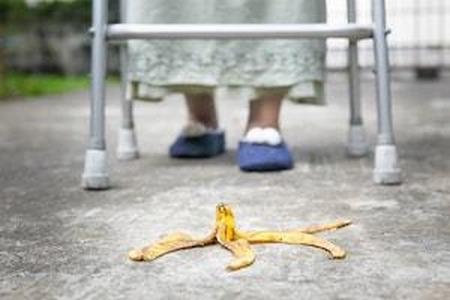How Can I Prove Negligence for a Slip and Fall Accident in Illinois?
Slip and fall accidents can happen anywhere at any time. There are many reasons for slip and fall injuries, such as inadequate lighting, substances on the walkway, poor or damaged flooring, or obstacles on the floor that cause a tripping hazard. Thousands of Americans suffer from slip and fall injuries each year. According to the National Safety Council, approximately 9.2 million people were treated in emergency rooms for fall-related injuries in 2016. Although a lot of people might consider them minor, injuries from slips or falls can actually be quite severe. Common injuries from slips and falls include muscle strains, sprained ankles and wrists, bone breaks and fractures, joint dislocations, spinal cord injuries, traumatic brain injuries, and even death in certain scenarios. In many cases, these slips and falls are due to negligent property owners, but what does negligence mean, and how can it be proven?
Duty of Reasonable Care
According to the Illinois Premises Liability Act, each property owner has an obligation to make sure their property is reasonably safe for occupants. This is called the duty of reasonable care. This means property owners have the responsibility of making sure their property is free of hazards that a “reasonable person” would deem to be dangerous.
Definition of Negligence
The Illinois Civil Pattern Jury Instructions defines negligence and how it pertains to personal injury cases. Negligence means the failure of a person to do something that a “reasonably careful” person would do or when a person does something that a reasonably careful person would not do under the same circumstances.
Proving Negligence
When it comes to proving negligence, Illinois operates on a contributory negligence basis. This means that in some cases, both the plaintiff (you) and the defendant (the property owner) may be partially responsible for the injury. As long as your contributory negligence is less than 50 percent, you can still recover damages. To prove that the property owner was negligent, you must prove all of the following:
-
There was some sort of hazard on the property that presented a danger to its occupants.
-
The property owner knew or should have known about that hazard.
-
The hazard was the reason you slipped or fell.
-
You suffered an injury because of your slip or fall.
-
You sustained damages, such as lost wages or medical bills, because of the injury.
Contact a DuPage County Personal Injury Lawyer
Illinois property owners have a legal responsibility to make sure their property is safe for others to use. If you have suffered an injury in a slip and fall accident, you should first seek medical attention, if necessary. Next, contact a knowledgeable Bloomingdale, IL slip and fall injury attorney as soon as possible. At the Mevorah & Giglio Law Offices, we have more than 200 years of combined experience helping personal injury clients claim the compensation they deserve. To schedule a free consultation, call our office today at 630-932-9100.
 English,
English,
 Spanish,
Spanish,
 Polish,
Polish,
 Urdu
Urdu














 Make a Payment
Make a Payment



